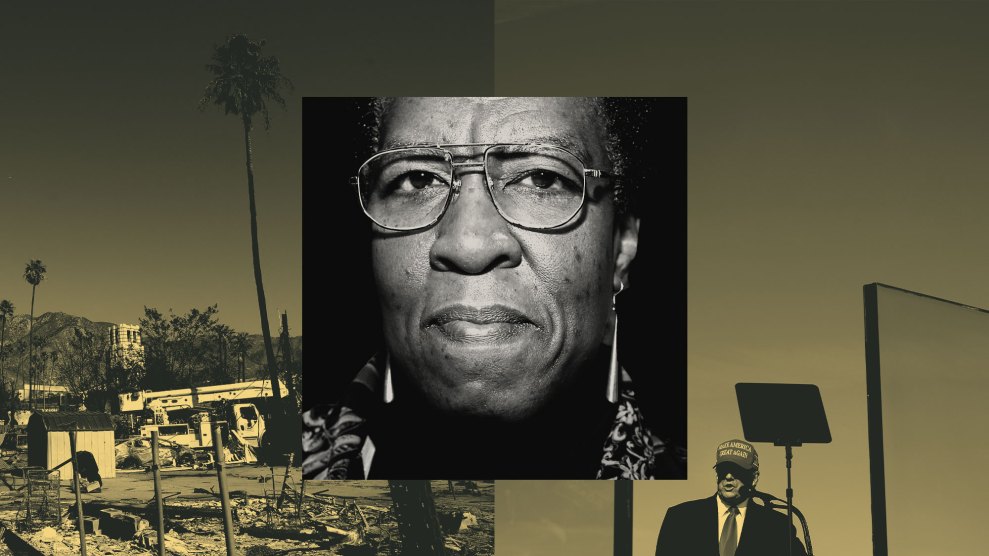Muammar Qaddafi and Silvio Berlusconi have more in common than their tastes for lavish parties and sexy young women, or even their notorious 2009 “friendship pact.” Despite being the buffoons of their respective regions, each wields considerable power. And they share a common destiny that revolves around two types of Libyan exports: fossil fuels, which Italy desperately wants, and migrants, which it decidedly doesn’t.
Franco Frattini, the Italian foreign minister, warned on Wednesday that the Libyan uprising could result in 350,000 unwanted immigrants landing on the European continent. According to the Italian news site Adnkronos, Italy asked the EU for support in stopping the migrants, who most often enter through Italian shores.
”We ask that Europe do its duty,” he said during a Wednesday address to parliament in Rome. We want Europe to do more managing the flow of migrants because countries cannot be left alone.”
Italy in May 2009 agreed to begin controversial joint patrols with Libya, turning back thousands of illegal immigrants aboard boats in the Mediterranean.
Libyan leader Muammer Gaddafi hinted that he may unilaterally scrap cooperation, warning that he would allow thousands of migrants to pass through his country on the way to Europe if the EU sided with opponents of his embattled rule.
Qaddafi knows all too well how to frigthen European leaders–especially Berlusconi–who have right-wing, nationalist, anti-immigrant movements at their backs. And in normal times, this sort of scare tactic might have been enough to push Europe into aquiescence as differences were papered over in some sort of “reform.” But it is too late for that. Qaddafi totters, and no one can predict what will happen in the region. Emerging politics might at best result in some version of an Indian-style democracy, at worst chaotic Somali-style warfare with faction pitted against faction.
What may be even more frightening to Italy–and to much of Europe as well–is the prospect of losing Libya’s supply of oil and natural gas. Italy gets one third of its oil from Libya by way of the big oil company ENI. The company has already pulled out most of its employees and cut back the flow of natural gas through the pipeline that connects Libya and Italy.
ENI is the sixth largest oil company in the world. It is 30 percent owned by theItalian government, which has special rights to block mergers and sharply limit holdings of other investors. About 11 percent of the company securities are held by institutions including such big American mutual funds as Vanguard and Fidelity, along with Wellington Management, the big Boston investment management concern. The top 10 institutional holders control about 8 percent of the stock. Unlike the other majors, it has most of its reserves in politically volatile North Africa, which as the oil industry goes, remains relatively underdeveloped.
In turn, as Al Jazeera reports, several other international energy giants have stakes in Libyan oil and gas. Following the 2003 rapproachment with Qaddafi,
European energy firms were quick to invest in the holder of Africa’s largest proven oil reserves, the eighth-largest in the world, while many others signed lucrative arms and construction deals.
Tony Blair, Britain’s former prime minister, signed a so-called “Deal in the Desert” in March 2004, which paved the way for oil contracts worth billions, leading to a close relationship that has come under increasing criticism.
It included Anglo-Dutch company Shell signing an agreement worth up to $1bn and three years later BP agreeing its largest exploration commitment to date, in a deal worth at least $900m in Libya.
A historical footnote: Both Libya and Italy have been important but little-known players in the evolution of Middle East oil. In March 1951 the nationalist government of Mohammad Mossadeq in Iran took over the oil industry from the Anglo Iranian Oil Company, which became BP. The CIA conpired to overthrow Mossadeq and installed the Shah. Then the U.S. stepped in with Herbert Hoover, Jr., dispatched by President Eisenhower to reinstate the international cartel of big companies that for years had dominated the industry. Iran’s oil reserves were carved up amongst British, Dutch, French and for the first time, American interests. But it did not include Italy, which was entirely dependent on imported oil.
Angered at being cut out of the competition, Enrico Mattei, head of the Italian state company now known as ENI, went to war against the cartel, and after Suez in 1956 he persuaded the Iranian parliament to rewrite the country’s petroleum law to make way for a new sort of production system known as joint ventures. Under this arrangement the company and country became partners, and they replaced the old concessions. In short order, the joint venture opened the way for direct nationalization and the birth of OPEC.
This post originally appeared on Jim Ridgeway’s blog, Unsilent Generation.
















